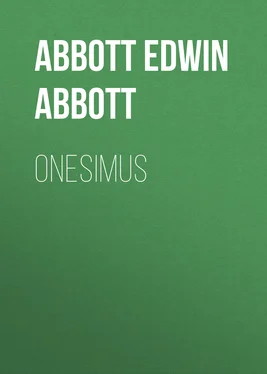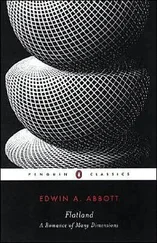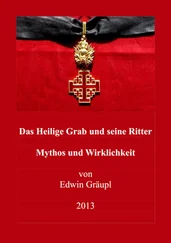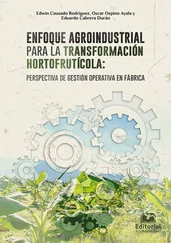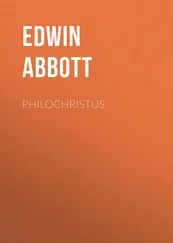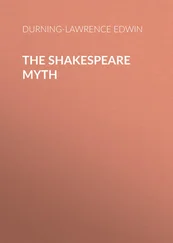Edwin Abbott - Onesimus
Здесь есть возможность читать онлайн «Edwin Abbott - Onesimus» — ознакомительный отрывок электронной книги совершенно бесплатно, а после прочтения отрывка купить полную версию. В некоторых случаях можно слушать аудио, скачать через торрент в формате fb2 и присутствует краткое содержание. Жанр: foreign_sf, на английском языке. Описание произведения, (предисловие) а так же отзывы посетителей доступны на портале библиотеки ЛибКат.
- Название:Onesimus
- Автор:
- Жанр:
- Год:неизвестен
- ISBN:нет данных
- Рейтинг книги:4 / 5. Голосов: 1
-
Избранное:Добавить в избранное
- Отзывы:
-
Ваша оценка:
- 80
- 1
- 2
- 3
- 4
- 5
Onesimus: краткое содержание, описание и аннотация
Предлагаем к чтению аннотацию, описание, краткое содержание или предисловие (зависит от того, что написал сам автор книги «Onesimus»). Если вы не нашли необходимую информацию о книге — напишите в комментариях, мы постараемся отыскать её.
Onesimus — читать онлайн ознакомительный отрывок
Ниже представлен текст книги, разбитый по страницам. Система сохранения места последней прочитанной страницы, позволяет с удобством читать онлайн бесплатно книгу «Onesimus», без необходимости каждый раз заново искать на чём Вы остановились. Поставьте закладку, и сможете в любой момент перейти на страницу, на которой закончили чтение.
Интервал:
Закладка:
§ 3. OF THE STRANGER, AND OF DIOSDOTUS THE PRIEST OF ZEUS
When we were come home to Ammiane, I spoke freely to her as I was wont, concerning all that I had heard and seen; and I asked her which of the two she judged to be the wiser and the mightier, the hook-nosed prophet—for so I called the stranger—or Diosdotus. Now Diosdotus was the priest of the city, a man of noble birth and very wealthy, having rebuilt the baths at his own expense after the earthquake, as also his father before him had rebuilt the amphitheatre. He was also tall of stature and of a gracious and commanding carriage. Yet now I could not help making comparison between him and the stranger of mean presence and short stature; bethinking myself that Diosdotus had lived for thirty years in the same city as poor lame Xanthias and yet had suffered him to be still lame, whereas the strange prophet had healed him on the very day of his first coming in. However Ammiane laughed and chid me for my question, saying that I did ill to compare an obscure vagrant soothsayer with the high priest of Zeus; for that there were many travelling priests of Cybele and Sabazius and jugglers and necromancers that would work signs and wonders in the eyes of the common people, and all for a drachma or two; but Diosdotus was none of these, nor to be mentioned along with them. Nevertheless, when the report came in from all sides that the lame man was wholly cured, she said she would send for Xanthias, as soon as might be, that she might see him and learn the truth of the matter, and what charms or herbs the stranger had used. But about the fourth or fifth day afterwards—my foster-mother having in the meanwhile, upon one cause or other, delayed to send for Xanthias, but many rumors coming daily to our ears of the great wonders which the magician was working—word was brought that the stranger had been slain; others said that he had ascended to the sky, others that he had been swallowed up in the earth; but all agreed that he was not now in the city. Then we found that there had been a great conflict in the Jews’ quarter; for certain Jews had come over from Lystra to Iconium pursuing after the enchanter (so they called him) and accusing him of many grievous crimes. Now it happened to be a time of drought, and the rain, which had begun to fall on the day that the stranger came to Lystra, ceased on that same day, about the time of his entering in, and fell no more for six or seven days, though all the crops were perishing for want of it. So the Jews said that this plague was fallen upon the city of Lystra because we gave shelter to an accursed necromancer; and having persuaded the people they stoned him. But his body could not be found; wherefore the people were the more persuaded that he was a necromancer, insomuch that all now (except Xanthias and a very few others) believed him to be no prophet but an evil-doer and a deceiver of the people.
But on the very day after these things the sun was darkened, and still no rain fell; and on the third day after the stoning of the stranger, came a great plague of locusts so thick together that they lay two inches deep in the racecourse; and not many days after that, came the shock of an earthquake; and ten houses in the Jews’ quarter were wholly thrown down (besides others sorely shaken and shattered), insomuch that some fourscore of the Jews were slain, and their synagogue was utterly destroyed. Upon this the people began to change their minds again, and some made bold to say that the god of the new prophet had sent these evils; and so the city was divided, and part held that the stranger was a deceiver and an enchanter, but part that he was a teacher of the true God and a prophet. At last when the customary sacrifices seemed of no avail, but the drought still endured, and by intervals there came ever and anon shocks of earthquake, it seemed good that there should be a solemn procession of all the city to avert the wrath of the gods, one for Pessinuntian Cybele, the other for Asphalian Poseidon and the third for Zeus Panhemerius. This last far surpassed the other two in splendor, and amidst the whole procession most of all to be admired was Diosdotus the chief priest, himself most like to a god, clad in white linen with a purple border, and a garland on his head, and attended by the inferior priests, and by ministers bearing incense and scattering flowers and perfumes; and after them, the white oxen with their horns gilt for the sacrifice, and then the choir of boys, with laurel branches in their hands, singing, to the accompaniment of the lyre, the hymn which had been chosen by Onomarchus, the secretary of the senate. Beholding all this splendor (exceeding anything I had ever before witnessed) I inclined now to prefer Diosdotus to the strange prophet; and all the more because Ammiane was clearly on the side of the former. Moreover on the second day after the procession there fell rain in abundance. So all the people now turned to magnify Zeus Panhemerius; and the drought and the earthquake were forgotten, and with them the memory of the stranger faded away.
Yet in my dreams sometimes, both then and for many months afterwards, methought I saw the strange prophet who had healed Xanthias, standing over against Diosdotus and contending against him; and I heard his voice again and again in the darkness, saying, “The Lord be unto thee as a father.”
§ 4. HOW WE GREW UP AT LYSTRA
Six or seven years passed smoothly away for me and my brother Chrestus. Our dear mother Ammiane caused us to be taught singing and dancing, as well as riding and the exercises of the gymnasium; and partly because of our beauty and partly because we were regarded as the adopted children of one whom all the citizens loved and honored (for there are still extant inscriptions in Lystra praising our benefactress and calling her the MOTHER OF THE CITY, on account of her many gifts and benefactions to the people of Lystra) we were chosen among the choir of boys who were to sing songs year by year in honor of Apollo and Ephesian Artemis in accordance with the recent decree of the senate; and in all our riding-lessons and wrestling-lessons we took part with the well-born youth of the city; for all knew that Ammiane intended us to be her heirs after her death. But in my fourteenth year it happened that, while seeking for a goat that had strayed in the mountains, I missed my footing and fell down a steep place, where I was taken up for dead; and Hermas brought me home wounded well-nigh to death with two deep gashes on my forehead and left cheek. In a short space I was recovered of my wounds; but I was grievously disfigured with the scars upon my face, and when I went with my brother, as I was wont, to the choir-master, he plainly told me that I was no longer fit to dance nor sing with the choir, for the god required comely youths to minister to him. Hereat I was sore vexed, and yet more when I perceived (or thought that I perceived) that in the palæstra also and in the riding-school I was no longer so welcome as of old; for some openly jested at my disfigurement, and others, who had before courted my company, now avoided me; at least so I thought, misconstruing perhaps and aggravating little slights, in my discontent. However it was, I became morose and lost my former cheerfulness; for the world seemed changed and turned against me. But the kind Ammiane, discerning what was amiss with me, persuaded me to apply myself to letters; and she bought for us one Zeno, a Greek, to be our tutor. Now Chrestus, being the leader of the choir and the favorite in the palæstra, by reason of these distractions cared less for learning; but I, withdrawing myself from my former pursuits and devoting myself to letters, made good progress in my new studies, so that I soon became skilful at transcribing Greek characters; and I took a great delight in the reading of Euripides and others of the Greek play-writers, but most of all in the poetry of Homer. And in these pursuits I continued till my sixteenth year, finding pleasure in many things but most of all in the love of my beautiful brother Chrestus.
Читать дальшеИнтервал:
Закладка:
Похожие книги на «Onesimus»
Представляем Вашему вниманию похожие книги на «Onesimus» списком для выбора. Мы отобрали схожую по названию и смыслу литературу в надежде предоставить читателям больше вариантов отыскать новые, интересные, ещё непрочитанные произведения.
Обсуждение, отзывы о книге «Onesimus» и просто собственные мнения читателей. Оставьте ваши комментарии, напишите, что Вы думаете о произведении, его смысле или главных героях. Укажите что конкретно понравилось, а что нет, и почему Вы так считаете.
